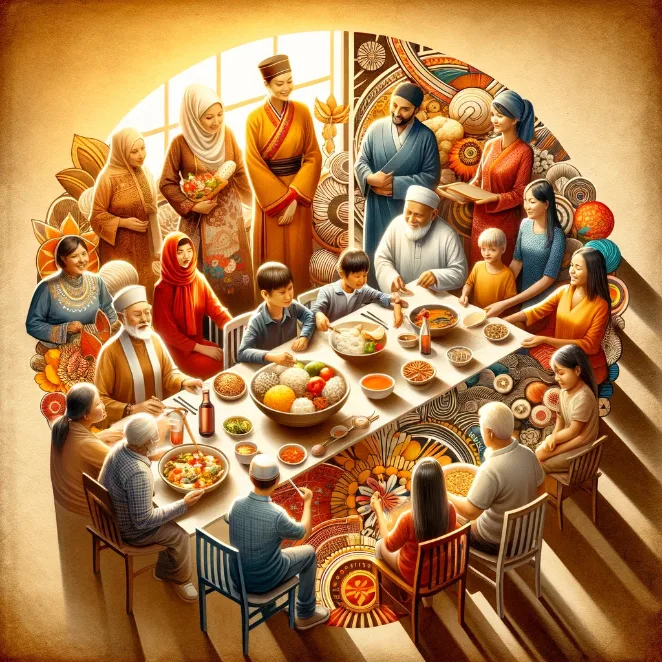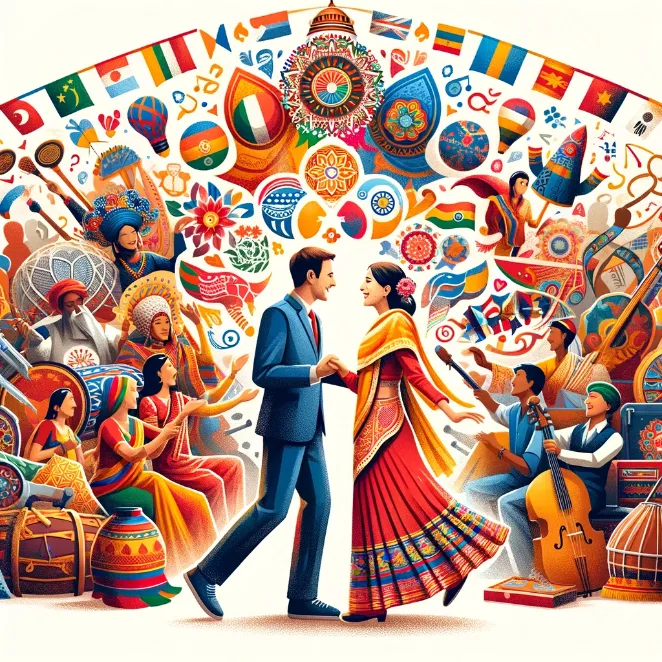
Culture and Love: Uniting Hearts Across Differences
In the intricate dance of relationships, culture plays a vital, yet often subtle role. It shapes our beliefs, values, and behaviors, influencing how we connect with others. This article delves into the multifaceted ways in which cultural backgrounds impact relationship compatibility. From communication styles to family dynamics, understanding cultural influences is key to navigating and enriching romantic relationships in today's globalized world
article by Sofia Ferguson
Cultural Values: The Foundation of Compatibility
At the core of every culture lie values that dictate norms and behaviors. These values, whether individualistic or collectivistic, influence how individuals in relationships prioritize personal desires versus family expectations. For instance, in individualistic cultures, personal fulfillment in a relationship might take precedence, while in collectivistic cultures, family approval and alignment with traditional values may be more significant. Understanding these cultural values is crucial for partners from diverse backgrounds to find common ground.

Communication Styles: Bridging Cultural Gaps
Cultural influences extend to communication styles, a critical aspect of any relationship. Direct versus indirect communication can cause misunderstandings between partners from different cultures. For example, in some cultures, direct expression of feelings is encouraged, while in others, subtlety and indirectness are valued. Recognizing and adapting to these differing communication styles is essential for cross-cultural relationship compatibility.
Family Dynamics: Cultural Threads in Relationships
Family involvement in relationships varies significantly across cultures. In some cultures, families play a central role in partner selection and relationship development, while in others, individuals have more autonomy. Understanding each partner's family dynamics and the cultural importance placed on family can help in navigating this aspect of the relationship.

Cultural Celebrations and Rituals: Embracing Diversity
Participating in each other's cultural celebrations and rituals can strengthen cross-cultural relationships. It’s an opportunity for partners to show respect and interest in each other's backgrounds. This involvement not only enriches personal understanding but also deepens the bond by creating shared experiences and memories.
Example: European vs. Asian Cultural Dynamics in Relationships
The cultural divide between European and Asian nations significantly impacts relationship dynamics. European cultures often emphasize individualism, personal freedom, and open communication. In contrast, many Asian cultures value collectivism, family cohesion, and a more reserved communication style. These differing priorities can influence everything from the decision to enter a relationship to how conflict is managed. For instance, a European partner might prioritize personal fulfillment and directness in addressing issues, while an Asian partner might emphasize family approval and a more harmonious approach to conflict resolution. Navigating these differences requires mutual understanding and respect.
Adapting and Growing: The Evolving Cultural Landscape
Successful cross-cultural relationships often involve a continuous process of learning and adapting. Partners who embrace each other's cultures and are willing to grow together can build a strong, enduring bond. This adaptability is especially important in a world where cultural landscapes are continually evolving.

In conclusion, cultural influences in relationships are complex but not insurmountable. By understanding and embracing cultural differences, partners can transform potential barriers into bridges. This cultural synergy can lead to deeper understanding, respect, and a unique richness in the relationship.
Published: 11/11/2023
Modified: 11/11/2023
More predictions
Come back here soon to learn more about yourself and your future





